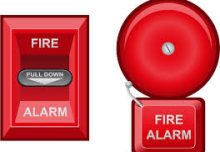 We see a lot of therapies advertised commercially these days, and all of them talk about possible side effects – usually toward the end of the ad. My favorite is when they tell us that if we are allergic to the medication, we should not take it…if you haven’t heard this before, just listen until the very end of any of the ads on your cable network.
We see a lot of therapies advertised commercially these days, and all of them talk about possible side effects – usually toward the end of the ad. My favorite is when they tell us that if we are allergic to the medication, we should not take it…if you haven’t heard this before, just listen until the very end of any of the ads on your cable network.
But nobody talks about the side effect that is the sixth leading cause of mortality in the United States – behind stroke and ahead of Alzheimer’s disease – and it leads to an estimated 125,000 deaths a year. Ready for this? It is NOT taking your medication…they sometimes call it nonadherence or noncompliance, but it’s responsible for 10% of hospitalizations and costs the healthcare system an estimated $289 billion dollars a year, and yes, it kills 125,000 a year. (I know there is a difference between nonadherence and noncompliance, but we won’t get into that here.) And it’s not a really new phenomenon. Hippocrates even warned about noncompliance when he cautioned his medical students to “keep watch also on the fault of patients which makes them lie about taking things prescribed.”
Sadly, some of the noncompliance among older adults comes from the financial strain of being on multiple meds that are so expensive that it forces them to choose between food and medication. But some of it also is just not fully comprehending the importance of what they take and when to take it. There are lots of technologies or gadgets that have built-in reminders for pill-taking like plastic boxes labeled for day of week, day of month or time of day. Some have beeping noises as an added reminder, and some actually will tell a potentially-forgetful patient not only when they should take a pill, but also if they already have taken their pill(s).
If you are the caregiver to an older loved one, you may consider a bit of a test with your care receiver. In this test you simply ask your loved one about the medication(s) in question. Does the patient know what it is for? …what they are taking the medication to avoid? …or what sort of ill effect is a consequence of their not taking it? Many patients know only that a pill makes them dizzy or urinate more often or feel bloated or lose sleep. But they may not appreciate that the medication reduces their risk of stroke or a heart attack or improves the quality of their lives.
How does one get to that point where the patient is motivated and therefore is compliant? First, it’s a team effort; I like to call this “Team Mom” or Team ____ (whatever your loved one’s name is). The players on the team are you, a partner or spouse, the prescribing physician and the most important player, the patient. Help the star player, the patient, to translate the medication into something that is really valuable to them…make it personal. Then, identify any obstacles to compliance…forgetfulness, having the medication where they are at that particular time of day or night, side effects that are unacceptable, and such.
And don’t forget patient educators, making generic alternatives available and making compliance count for them, the patient. And physicians suggest starting with modest first steps. Don’t take on all six medications the patient may be taking, but start with the two that are most critical to their health or start with the medication that has the most conspicuous benefit. Establish a pattern of conspicuous success…I call it catching them in the act of doing things right. Then continue by asking how many doses the patient may have missed since the last conversation…don’t ask if they are “taking their medications.” Who wouldn’t just say yes to the first question? And scaring them does not work either! And I had mentioned technology. Just Google “medication reminders,” and you will see a host of options. And don’t forget that you can enlist the support of Alexa as a relatively pleasant verbal reminder for your loved one.
Charlotte Bishop is an Aging Life Care Advisor, Geriatric Care Manager and founder of Creative Care Management, certified professionals who are geriatric advocates, resources, counselors and friends to older adults and their families in metropolitan Chicago. She also is the co-author of How Do I Know You? A Caregiver’s Lifesaver for Dealing with Dementia.






